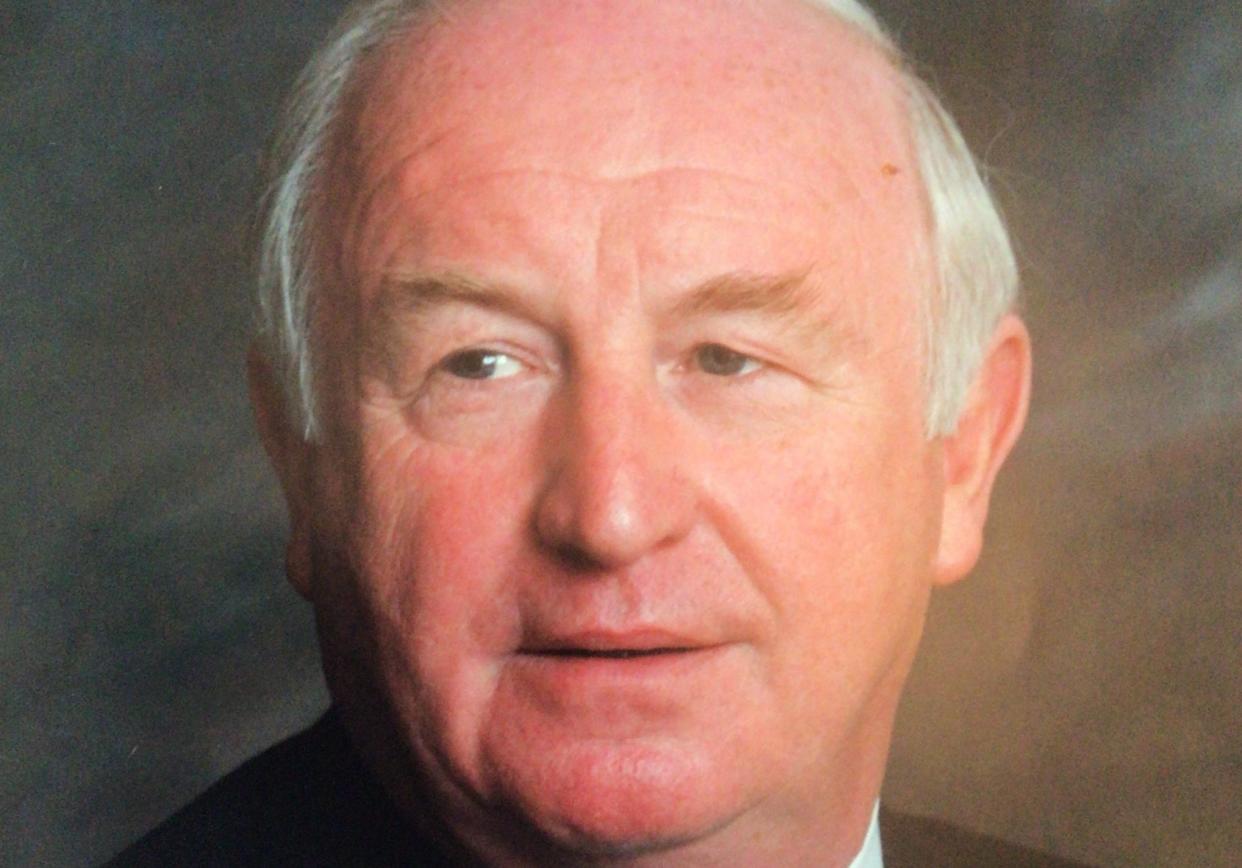John B Hobbs obituary

John B Hobbs, who has died aged 87, formed his first theatre company at the age of 12, and the stage remained his first love. He even continued to write and mount shows across the country while enjoying a successful career as a BBC staff producer-director on television sitcoms.
Making the last two series of ’Allo ’Allo! (1991-92) towards the end of his days at the BBC not only required Hobbs to demonstrate his experience in crafting popular TV, but also his diplomacy in working with a cast that had established a hit programme without him.
Robin Nash, the head of comedy, dispatched him to dine with Gorden Kaye, who played the cafe owner René Artois, at the centre of the action in David Croft and Jeremy Lloyd’s creation set in German-occupied France during the second world war and intended as a parody of the BBC drama Secret Army.
“I’m pleased to say we got on very well,” Hobbs told the journalist Richard Webber. “The BBC were keen to do another series and were trying to keep Gorden sweet, so gave him the courtesy of meeting me first instead of telling him I was going to be the next producer.” Hobbs described the programme’s humour as like “seaside postcards with a tremendous amount of innuendo”.
The producer had arrived on ’Allo ’Allo! after similarly completing the final two series of Bread (1990-91), Carla Lane’s sitcom about a jobless working-class Liverpool family playing the system, with Jean Boht as the acid-tongued matriarch, Nellie Boswell, keeping them in order.
His record of producing and directing sitcoms over the previous decade was astonishing. He began with the fourth series of Terry and June (1982), starring Terry Scott and June Whitfield in suburban matrimony, before seeing others through from beginning to end.
Most featured, through pure coincidence, people facing life changes: Keith Barron and Susan Hampshire struggling with divorce in Leaving (1984-85), another Lane creation; John Duttine turning hermit after a broken marriage in Lame Ducks (1984-85); Barron and Nanette Newman confronting mid-life parenthood in Late Expectations (1987); and Wendy Craig in chaotic scenarios following divorce in Laura and Disorder (1989).
Hobbs also took over from other producers to steer Three Up, Two Down (from 1986 to 1989), starring Angela Thorne as a snob and Michael Elphick, whom she looks down on as a cockney oik, and Brush Strokes (from 1990 to 1991), with Karl Howman playing an amorous house painter.
He was born in Bristol to Margaret (nee Britton) and Jack Hobbs, a milkman. Aged 12, he formed the Marivale Players, acting, producing, painting scenery and making props with a company of 40 boys and girls aged 11 to 17 who performed in hospitals, village halls and YMCAs. Two years later, he wrote his own version of Snow White and the Seven Dwarfs. He also learned to tap-dance and appeared in Bristol Shakespearean Society productions.
On leaving St George’s grammar school at 15, Hobbs continued in amateur theatre but, looking for a regular income, cast aside ideas of turning professional to become a junior clerk at the city’s BAC aviation company.
After acting on BBC radio’s Children’s Hour at their Bristol studios, he found the lure of show business great enough to persuade him to leave BAC to try his luck as an actor, singer and dancer. He even donned a wig and a dress to stand in for Arthur Lucan as the mother in the music-hall act Old Mother Riley and Her Daughter Kitty, alongside Lucan’s wife, Kitty McShane.
His efforts to join the BBC resulted in the offer of a job as a junior accounts clerk on Radio Times in London. He moved on to the gramophone library before becoming a floor assistant working on programmes such as the sci-fi serial A for Andromeda (1961), then a floor manager on Play School (1964) and other shows.
He spent the 1970s as a production assistant. Among the tasks he undertook were paying extras in francs from a briefcase while filming Clochemerle (1972) in France; finding an articulated lorry and driver for a 1973 stunt in Some Mothers Do ’Ave ’Em, with Michael Crawford rollerskating under the vehicle; and clearing a Dorset beach of 200 holidaymakers for the opening title sequence of The Fall and Rise of Reginald Perrin (1976-79).
By the time he had worked on To the Manor Born (in 1979) and another Lane sitcom, Butterflies (1978-80) – when he added director and assistant producer to his CV – Hobbs had become a fully fledged producer. His last sitcom was Down to Earth (1995), starring Richard Briers as a landscape gardener.
Outside the BBC, he spent 21 years directing shows for Sixty One, an amateur theatre company he founded in 1961. With it, he ran evening classes for the Inner London Education Authority and mounted both spring musicals and Christmas pantomimes at Acton town hall. Its final performance was a special production of the Rodgers and Hammerstein musical Carousel at the Westminster theatre in 1982.
Hobbs then directed professional actors at the Mill, Sonning, in Berkshire (1986-92), and across Britain for the leading pantomime producer Nick Thomas Enterprises (1989-95).
On leaving the BBC in 1994, he continued directing stage productions. He toured with the musical Happy As a Sandbag (1995), the farces Out of Order (2000) and Business Affairs (2001), both reuniting him with Kaye, then Just Pearl (2003), Juliette Kaplan’s one-woman show reflecting on her Last of the Summer Wine character.
Less successful was his only film, La Passione (1996), written by the singer Chris Rea.
Hobbs is survived by Iain McCorquodale, his partner of 55 years, who acted with the Sixty One company.
• John Brian Hobbs, producer and director, born 14 May 1936; died 29 February 2024

 Yahoo News
Yahoo News 
